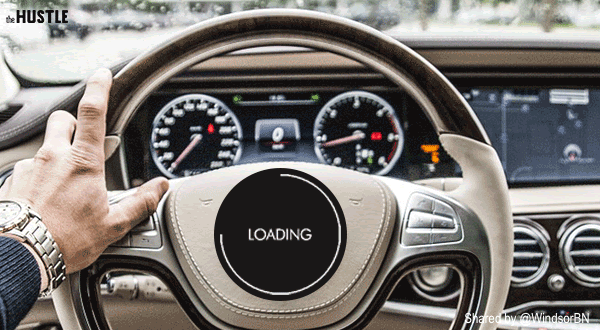
Data collected by connected cars ends up with carmakers, not consumers
Yesterday, Chevy introduced a new “Buckle to Drive” feature that will prevent cars from starting until teen drivers buckle their seatbelts.
As cars become more advanced, they are collecting more data about passengers. In Chevy’s case, this data goes to good use: Keeping drivers safe.
But when your car collects other data about you — like how much weight you’ve recently gained — it’s less clear how it’s used.
Giant computers with wheels
Some modern cars collect as much as 25GB per hour, reports Bill Hanvey — president and CEO of the not-for-profit Auto Care Association — in a recent opinion piece for The New York Times.
But not all of this info is about vehicle performance. Cars track how fast we drive — which is already enough to alarm many people — but they also track where we live, who we text, and what restaurants we visit.
The kicker? Most of this data isn’t delivered to the car’s owner or passengers… it’s delivered to carmakers, and any 3rd parties willing to pay for it.
Who does your car really work for, anyway?
Most people realize that services like Facebook and Google are double dipping into their data. But many people wouldn’t expect that kind of behavior from their cars.
Yet the fine print of most purchase and lease agreements allows today’s cars to devour data and pass it back to carmakers without making it available to consumers.
Car-collected data will be a gold mine
The data generated by cars will be worth as much as $750B by 2030, according to the consulting firm McKinsey.
Everyone wants car data: Carmakers could use it to direct cars to certain maintenance shops or build out autonomous fleets (Tesla’s strategy), insurers could use it to fine-tune policy premiums, and advertisers could use it to serve up location-specific ads.
But as car data drives this new digital economy, car owners will only continue to want their turn at the wheel.
